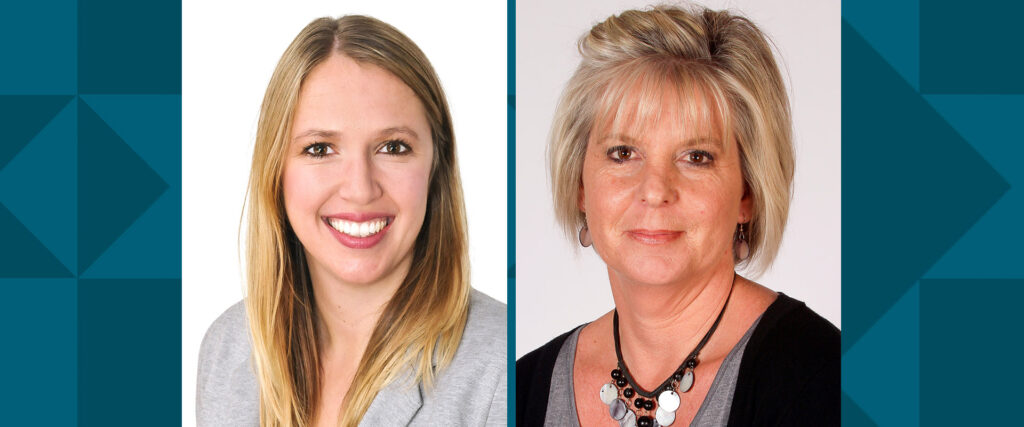MAIN IMAGE: Johette Smuts, PayProp head data analyst and Jacqui Savage, national rentals manager Rawson Property Group.
In today’s economic climate, wasting time, energy and money on a tenant that will default on payments or stop paying completely is just not an option.
And yet, in Q1 2019, almost 40% of tenancy applications were classified as either ‘high risk’ or ‘very high risk’, according to the PayProp Rental Index, a leading quarterly statistical analysis of the South African residential rental sector.
Read: Cautious optimism about rental growth
“This just shows again how important it is to properly assess tenants through credit checks and other means before placing them in a property you either own or manage,” says Johette Smuts from PayProp, SA’s largest processor of residential letting transactions. Smuts outlines three ways to spot a bad tenant to help rental agencies place better tenants:
- Not all debt is created equal
“It’s important to distinguish between good and bad debt on credit checks,” says Smuts. Tenants can have two types of accounts – CPA (Credit Provider Association) accounts and NLR (National Loan Register) accounts. CPA accounts include insurance, mobile phone contracts, retail stores and vehicle finance. These are the type of accounts that you can reasonably expect someone to have, and can be viewed as ‘good debt’, she says.
“NLR accounts are the ones you don’t want to see on a credit check. These include short-term loans from micro-lenders, usually with very high interest rates, and can be seen as ‘bad debt’. Higher risk tenants usually have fewer ‘good debt’ accounts and more ‘bad debt’ accounts than less risky tenants,” says Smuts.
- Interrogate credit enquiries
When potential tenants apply for credit, it could be a sign that they aren’t able to get by on their earnings. If they are applying for credit often, it is an indication that either the credit they received initially wasn’t sufficient, or that the credit wasn’t granted, leading the applicant to re-apply somewhere else. As with anything, there are exceptions – a tenant could simply be shopping around for the best interest rate for vehicle finance, for example. Smuts says that overall, there is usually a correlation between riskiness of a tenant and the number of credit enquiries done through various institutions.
- Unreliable payment behaviour
Most accounts have to be paid monthly, usually by a set date. Failure to make timeous payments will negatively affect a credit score and should be a red flag to anyone placing a tenant.
- Other factors
Sometimes multiple cell phone numbers or even addresses can be indicative of poor creditworthiness, as it could indicate that an applicant is trying to avoid debt collectors.
“In the current economic climate, property owners and agents need to see risk management as their number one priority concerning placements,” advises Smuts. “Don’t compromise on tenant placement, recheck before you renew, and diligently chase arrears.”
“Properly vetting tenants is always a vital part of any rental property’s success, but it’s even more important when the market is slow and demand is limited,” says Jacqui Savage, national rentals manager for the Rawson Property Group. “It can be tempting to let the vetting process slide in order to fill a vacant property sooner, but I can’t stress enough how dangerous this is for the security of an investment. It’s far, far more difficult and costly to get rid of an unreliable or non-paying tenant than it is to place a reliable one – particularly if you have professional help.”
Savage says they have a very clear and comprehensive process that all their rental partners follow when sourcing tenants for their landlords. Background checks are performed before taking a prospective tenant to view a property. “That way, we know from the start that they can afford the property they’re looking at, are not a security risk during the viewing, and aren’t wasting the landlord or current tenant’s time,” Savage explains.
Tenants also stand to benefit from this arrangement by avoiding unnecessary viewings of properties they are unlikely to qualify for.
“It’s definitely a time-saver,” says Savage, “since we can guide tenants towards properties that not only meet their personal preferences, but also fit their financial and lifestyle profiles. There’s no point in looking at rentals that aren’t going to allow your toddler or your dogs, for example, so let’s clear up those details from the very beginning and find you the right property off the bat.”
But what do these background checks actually involve?
“First of all, we ask prospective tenants to fill out a Declaration of Expenses document as well as an application form to kick off the vetting process,” says Savage. “That application form grants consent for us to perform various credit checks that give us a comprehensive overview of the applicant’s finances and reliability profile.”
Compiling that overview includes collecting the following details:
- A credit and identity check through the Credit Bureau
- Confirmation of income and employment via payslips and a call to the employer
- Confirmation of monthly expenses via 3-months of verified bank statements
- Personal references from previous landlords (if applicable) by phone call
“It’s only when tenants find a rental that they’re interested in that we pass those application and vetting documents on to the landlord. Once we have the green light from the landlord – which happens more often than not, thanks to our careful vetting – we draw up the lease documentation and move forward from there.”
“For privacy reasons, we let prospective tenants keep their full credit report if they’re not interested in pursuing any of the rental options that we take them to see,” she says.








